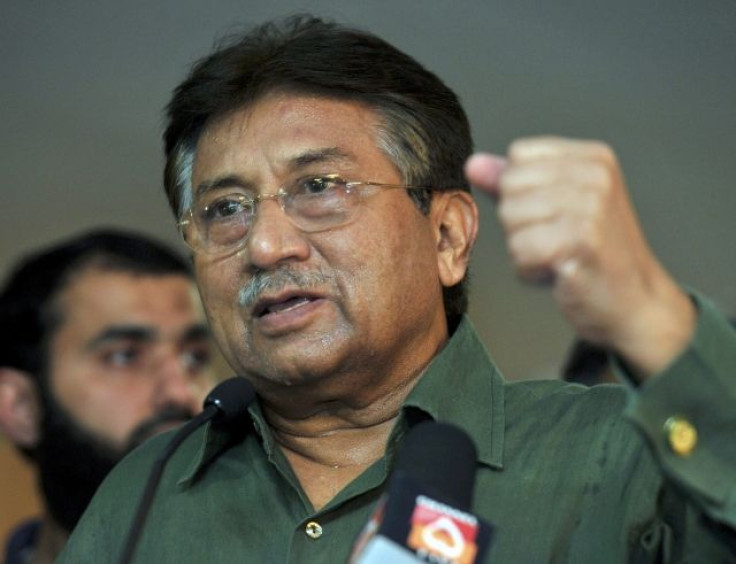You’re Out: Pervez Musharraf Ejected From Pakistani Elections

Pervez Musharraf, the former military leader of Pakistan, has seen his dream of returning to power dashed to pieces after electoral tribunal officials rejected his nomination papers in all four constituencies of the country.
As such, he is disqualified from running in the May 11 general election.
Musharraf’s attorney said he will appeal the electoral officials’ decision in the nation’s highest court.
“We will challenge it in the Supreme Court to show the world [the] biased attitude of the judiciary against Musharraf," Ahmed Raza Qasoori told CNN.
Qasoori also told Agence France-Presse that the decision was an “insult” to “an internationally known person” and would show the world “what [kind of] democracy we have.”
Musharraf, a retired general and former chief of the Pakistan army, had returned to his native country after a five-year period of self-imposed exile in Dubai and London. He ruled Pakistan from 1999 to 2008, when he voluntarily resigned upon facing impeachment.
The officer in charge of the electoral measures cited that Musharraf had violated the Constitution by illegally placing 62 judges under house arrest during his tenure as president during a state of emergency in the country in 2007.
In his defense, Musharraf told reporters on Monday that he installed emergency rule to save the country from chaos.
“The only thing in my heart was to save Pakistan and now I am here I have the same commitment, that I will save Pakistan,” he said.
Musharraf may have other more serious problems on the horizon – he may face charges of treason over a litany of alleged crimes, including not taking sufficient security precautions to protect the life of former Prime Minister Benazir Bhutto, who was assassinated in Rawalpindi in late December 2007 after her own return from exile.
Musharraf also may face charges related to the killing of Nawab Akbar Bugti, a popular tribal leader in the restive Baluchistan province in 2006.
In addition, the Pakistani Taliban has repeatedly threatened to kill Musharraf for his support of the U.S. military's “war on terror” in Afghanistan.
Now with Musharraf disqualified, it is unclear who, if anyone, will lead his All Pakistan Muslim League (APML) party in the May polls.
“Let us see what the Supreme Court decides. We are hopeful we will get justice,” Musharraf’s close aide and APML candidate in Islamabad, Mohammad Amjad, told AFP.
© Copyright IBTimes 2024. All rights reserved.











